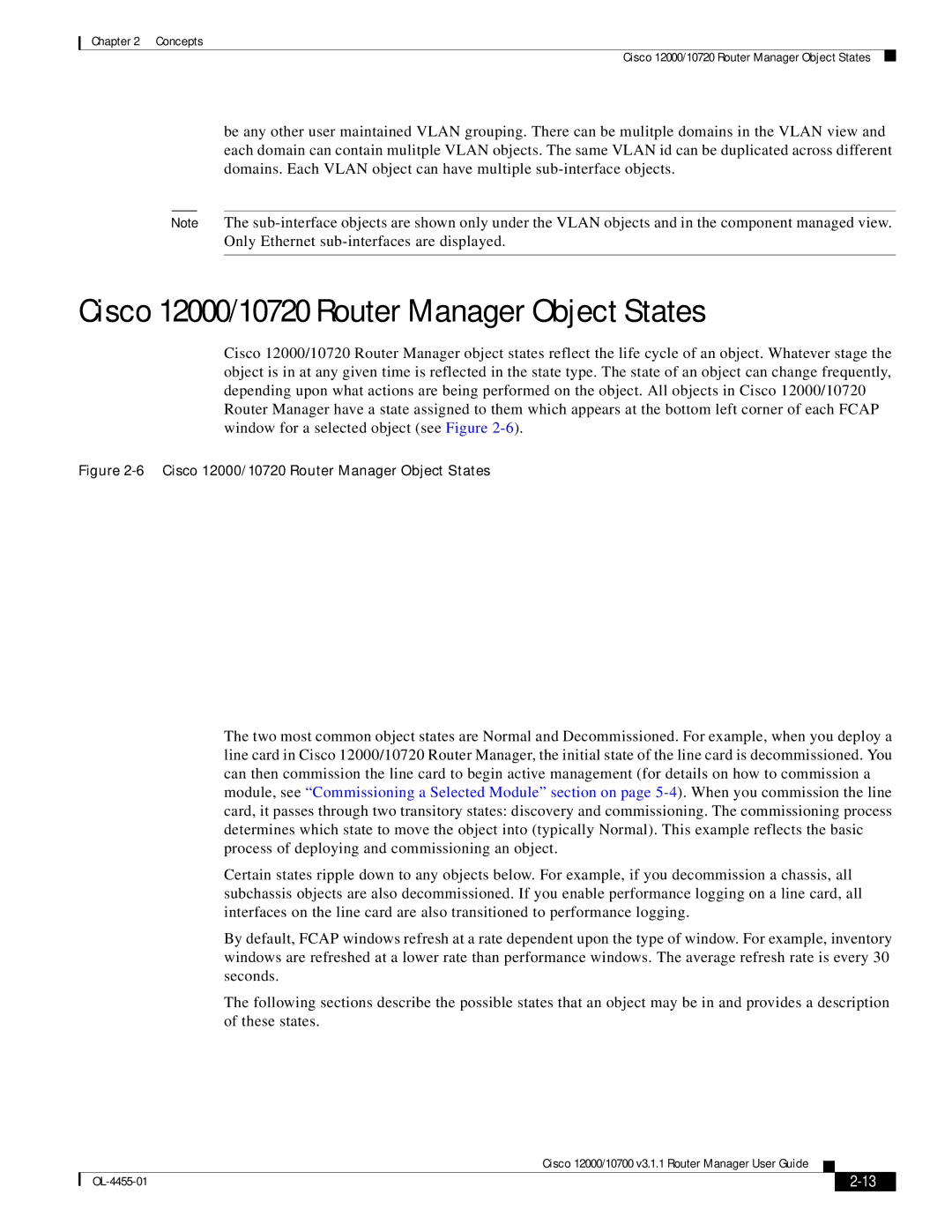
Chapter 2 Concepts
Cisco 12000/10720 Router Manager Object States
be any other user maintained VLAN grouping. There can be mulitple domains in the VLAN view and each domain can contain mulitple VLAN objects. The same VLAN id can be duplicated across different domains. Each VLAN object can have multiple
Note The
Cisco 12000/10720 Router Manager Object States
Cisco 12000/10720 Router Manager object states reflect the life cycle of an object. Whatever stage the object is in at any given time is reflected in the state type. The state of an object can change frequently, depending upon what actions are being performed on the object. All objects in Cisco 12000/10720 Router Manager have a state assigned to them which appears at the bottom left corner of each FCAP window for a selected object (see Figure
Figure 2-6 Cisco 12000/10720 Router Manager Object States
The two most common object states are Normal and Decommissioned. For example, when you deploy a line card in Cisco 12000/10720 Router Manager, the initial state of the line card is decommissioned. You can then commission the line card to begin active management (for details on how to commission a module, see “Commissioning a Selected Module” section on page
Certain states ripple down to any objects below. For example, if you decommission a chassis, all subchassis objects are also decommissioned. If you enable performance logging on a line card, all interfaces on the line card are also transitioned to performance logging.
By default, FCAP windows refresh at a rate dependent upon the type of window. For example, inventory windows are refreshed at a lower rate than performance windows. The average refresh rate is every 30 seconds.
The following sections describe the possible states that an object may be in and provides a description of these states.
Cisco 12000/10700 v3.1.1 Router Manager User Guide
|
| ||
|
|
